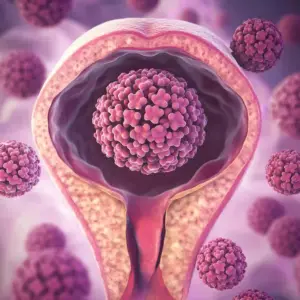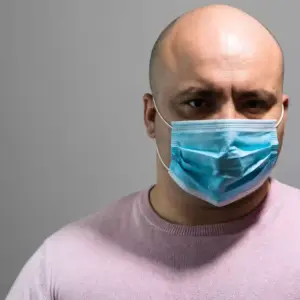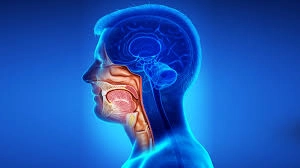Advanced Treatment and Care for Head and Neck Disorders
Offering expert diagnosis, advanced treatments, and personalized care for head and neck conditions at VS Hospitals.

Head & Neck Institute
The Head & Neck Institute at VS Hospitals offers specialized care for the treatment of various cancers, conditions, and disorders affecting the head and neck area, including the throat, mouth, sinuses, ears, and related structures. This institute brings together expert surgeons, oncologists, radiologists, speech therapists, and other specialists to provide comprehensive care for both cancerous and non-cancerous conditions. Whether treating tumors, infections, trauma, or degenerative diseases, the Head & Neck Institute at VS Hospitals provides personalized, multidisciplinary care to ensure the best possible outcomes.

Early Detection Saves Lives
Early detection and treatment are crucial for improving the chances of survival. If you notice any concerning symptoms, consult a healthcare provider immediately.
Signs and Symptoms
Lumps or Swelling
A noticeable lump or swelling in the neck, mouth, jaw, or throat area is one of the most common signs of head and neck cancer. Lumps may be painless initially but can become painful over time.
Sore Throat or Painful Swallowing
Persistent sore throat, difficulty swallowing, or a feeling that something is stuck in the throat can be signs of an underlying condition, including throat or esophageal cancer.
Voice Changes
Hoarseness, loss of voice, or other unexplained changes in speech could indicate a tumor or other issues in the throat, larynx (voice box), or vocal cords.
Bleeding or Discharge
Unexplained bleeding in the mouth, nose, or throat or a thick discharge from the nose or throat may be a sign of infection or cancer.
Pain in the Jaw or Teeth
Persistent pain in the jaw, teeth, or gums that doesn't improve may be related to oral cancer or other dental issues.
Ear Pain
Unexplained ear pain or a feeling of fullness in the ear, especially if it’s accompanied by other head and neck symptoms, could be related to head and neck cancers.
Nasal Blockage
Chronic nasal congestion or difficulty breathing through the nose can indicate a problem with the sinuses or nasal passages.
Unexplained Weight Loss
Sudden or unexplained weight loss, especially when associated with other symptoms like pain or fatigue, could be indicative of cancer or other serious conditions.
Numbness or Weakness
Numbness or weakness in the face, neck, or mouth area, particularly when affecting one side, should be evaluated for potential nerve involvement or cancer spread.
Blood in Urine
Hematuria - pink, red, or dark urine, the most common symptom
Frequent Urination
Feeling the need to urinate frequently, even when bladder is not full
Painful Urination
Experiencing pain or burning sensation while urinating
Back or Pelvic Pain
Pain that occurs as the cancer grows and spreads
Unexplained Weight Loss
Significant weight loss not related to diet or exercise
Fatigue
Feeling unusually tired or weak without a clear cause
If any of these symptoms persist for more than a few weeks or worsen over time, it is essential to seek medical attention for a proper diagnosis and treatment plan.
Meet Our Expert Head & Neck Institute Specialists
Risk Factors
Smoking
Smoking is one of the leading causes of bladder cancer. Chemicals in tobacco smoke can damage the lining of the bladder, increasing the risk.

Gender
Men are at a higher risk of developing bladder cancer than women.

Chronic Bladder Infections or Inflammation
Conditions such as bladder infections and long-term bladder inflammation can increase the risk.

Exposure to Chemicals
Prolonged exposure to certain chemicals, especially those used in the dye industry, rubber production, and chemical manufacturing, increases the risk.

Tobacco Use
Smoking or chewing tobacco is the leading cause of head and neck cancers, particularly oral, throat, and laryngeal cancers. The risk increases with the duration and intensity of tobacco use.

Excessive Alcohol Consumption
Heavy drinking, especially in combination with tobacco use, significantly increases the risk of developing cancers of the mouth, throat, and larynx.

Human Papillomavirus (HPV)
Infection with certain strains of HPV, especially HPV type 16, is a significant risk factor for cancers of the oropharynx (middle part of the throat). HPV-related cancers have been rising in recent years.

Poor Diet
A diet low in fruits and vegetables and high in processed foods and red meats may increase the risk of head and neck cancers. A healthy, nutrient-rich diet can help reduce this risk.

Family History
A family history of head and neck cancers may increase the risk, suggesting a genetic predisposition.

Age
The risk of head and neck cancers increases with age, particularly after the age of 50.

Gender
Men are more likely to develop head and neck cancers than women, though the incidence of HPV-related cancers in women has been increasing.

Occupational Exposure
Exposure to toxic chemicals, such as asbestos, wood dust, and certain industrial chemicals, can increase the risk of developing head and neck cancers, especially in individuals working in construction, mining, or other high-risk occupations.

Chronic Infections
Long-term infections, such as chronic sinusitis or oral infections, may contribute to the development of certain head and neck cancers.

Head & Neck Institute
Diet and Nutrition
Prevention
Diagnosis
Key Services
Key Facilities
Proper nutrition plays a vital role in both preventing head and neck cancers and supporting recovery during treatment. The dieticians at VS Hospitals work closely with oncologists to design customized meal plans for every patient.
- High-protein foods: Chicken, fish, lentils, and eggs aid tissue repair and muscle strength during chemotherapy or surgery recovery.
- Fruits and vegetables: Rich in antioxidants, vitamins A, C, and E help fight free radicals and strengthen immunity.
- Soft and moist foods: For patients with swallowing difficulties, soups, smoothies, and porridges are easy to consume.
- Whole grains: Brown rice, quinoa, and oats maintain energy levels and stabilize blood sugar.
- Adequate hydration: Maintaining fluid intake helps prevent dry mouth and flushes toxins.
- Avoid spicy and acidic foods: These can irritate sore throat or surgical wounds.
- Calcium and vitamin D: Strengthen bones and support recovery post-radiation therapy.
- Avoid processed foods and red meats: These may increase inflammation and slow healing.
A balanced diet helps maintain body weight, reduce fatigue, and enhance overall treatment response for patients at VS Hospitals.
Head and neck cancers are largely preventable through proactive lifestyle and healthcare choices. The VS Hospitals Head & Neck Institute promotes awareness, regular screening, and education to prevent disease onset.
- Quit smoking and tobacco chewing: The single most effective way to reduce cancer risk.
- Limit alcohol consumption: Reducing intake lowers the likelihood of tissue irritation and mutation.
- Practice safe oral hygiene: Regular brushing, dental check-ups, and tongue cleaning prevent infection and oral lesions.
- Get vaccinated for HPV: Prevents HPV-associated oral and throat cancers.
- Protect against sun damage: Use sunscreen or hats to reduce UV exposure to lips and face.
- Maintain a nutritious diet: Antioxidant-rich foods and hydration boost immunity and cell repair.
- Seek early medical help: Any lump, ulcer, or persistent symptom lasting over two weeks should be investigated immediately.
- Avoid occupational hazards: Use masks or protective equipment in dust- or chemical-heavy environments.
By emphasizing preventive strategies, VS Hospitals helps patients protect their long-term wellness and reduce cancer incidence in the community.
The diagnosis of head and neck cancers or other disorders typically involves several steps, including a physical examination, imaging tests, and biopsies. Accurate diagnosis is crucial to determine the appropriate treatment plan. Diagnostic procedures commonly used at VS Hospitals include:
- Comprehensive Clinical Examination: Thorough evaluation of symptoms such as lumps, voice changes, swallowing difficulty, or ear pain.
- Endoscopic Assessment: Flexible or rigid endoscopy to visualize the nasal passages, throat, and larynx for abnormalities.
- Imaging Studies: CT, MRI, and PET scans to detect tumors, infections, or structural deformities in the head and neck region.
- Biopsy and Cytology: Tissue or fine-needle aspiration tests to confirm cancerous or non-cancerous growths.
- Audiometry and Vestibular Testing: Hearing and balance tests for patients with ear-related head and neck conditions.
- Laboratory Investigations: Blood and molecular tests to identify infections, hormonal causes, or cancer markers.
- Multidisciplinary Evaluation: Collaborative review by ENT specialists, oncologists, and radiologists for precise diagnosis and treatment planning.
A thorough and timely diagnosis is essential for developing the right treatment approach, whether it’s surgery, radiation therapy, chemotherapy, or a combination of these.
VS Hospitals offers a range of specialized services for patients with head and neck conditions, including cancer and other disorders. Our services are designed to provide comprehensive care and improve the quality of life for patients. Key services include:
- Multidisciplinary Team Approach: Our team of specialists, including head and neck surgeons, oncologists, radiologists, speech therapists, and nutritionists, work together to provide holistic care for head and neck cancer patients.
- Surgical Treatment: VS Hospitals offers advanced surgical techniques for the removal of tumors in the head and neck region, including minimally invasive surgeries for better outcomes and quicker recovery.
- Radiation Therapy: Radiation therapy is an effective treatment for many types of head and neck cancers. We use cutting-edge radiation technology to target cancer cells while minimizing damage to surrounding healthy tissues.
- Chemotherapy: Chemotherapy is often used to shrink tumors, control cancer spread, or reduce the risk of recurrence. At VS Hospitals, we offer chemotherapy regimens tailored to the specific type and stage of cancer.
- Targeted Therapy: Targeted therapies are available to treat certain types of head and neck cancers by targeting specific molecules or genes involved in tumor growth.
- Immunotherapy: Immunotherapy uses the body’s immune system to fight cancer cells. We offer the latest immunotherapy treatments for advanced or recurrent head and neck cancers.
- Speech and Swallowing Therapy: For patients who undergo surgery or radiation, speech and swallowing therapy is available to help restore communication and the ability to eat and drink.
- Palliative Care: For advanced stages of cancer, palliative care is provided to help manage symptoms, improve quality of life, and provide emotional support for both the patient and their family.
VS Hospitals is equipped with state-of-the-art facilities designed to offer the best possible care for head and neck conditions. These facilities include:
- Advanced Diagnostic Imaging: Our hospital uses advanced imaging technologies, including CT scans, MRIs, and PET scans, to provide accurate diagnoses and assist in treatment planning.
- Surgical Suites: Modern surgical suites equipped with the latest technologies allow for precise and minimally invasive surgeries, ensuring better outcomes and faster recovery for head and neck cancer patients.
- Radiation Therapy Units: Our radiation therapy units are equipped with the latest technology to provide targeted radiation therapy, reducing side effects while effectively treating cancer.
- Speech and Swallowing Rehabilitation Centers: These centers are dedicated to helping patients recover their speech and swallowing abilities after surgery or radiation therapy.
- Multidisciplinary Oncology Clinic: A team of experts from various specialties, including oncologists, surgeons, radiologists, and speech therapists, work together to develop personalized treatment plans for each patient.
- Palliative Care Unit: Our palliative care unit ensures that patients with advanced head and neck cancer receive the necessary support to manage symptoms and improve their quality of life.
- Patient-Centered Care: VS Hospitals emphasizes holistic care, offering emotional and psychological support, nutritional counseling, and post-treatment rehabilitation to ensure the well-being of each patient throughout their journey.
Top Medical Facilities at Our Multispeciality Hospital – Here’s What Makes Us Different!
Ready to Begin Your Head & Neck Cancer Care Journey?
Learn More About Head & Neck Cancer
Frequently Asked Questions
Common symptoms of head and neck cancer include persistent sore throat, difficulty swallowing, voice changes, lumps or swelling in the neck, unexplained weight loss, and ear pain. If any of these symptoms persist, it’s essential to consult a healthcare provider for evaluation.
At VS Hospitals, treatment for head and neck cancer includes surgery, radiation therapy, chemotherapy, targeted therapy, and immunotherapy. The treatment plan is personalized based on the type, location, and stage of the cancer.
While head and neck cancer cannot always be prevented, avoiding risk factors such as smoking, excessive alcohol consumption, and poor diet can help reduce the risk. Regular check-ups and screenings are also important for early detection, particularly for individuals with a family history of the disease.
